Venice 2023: Three terrific films that could be formidable Oscar players
 Sunday, September 3, 2023 at 12:04AM
Sunday, September 3, 2023 at 12:04AM by Elisa Giudici
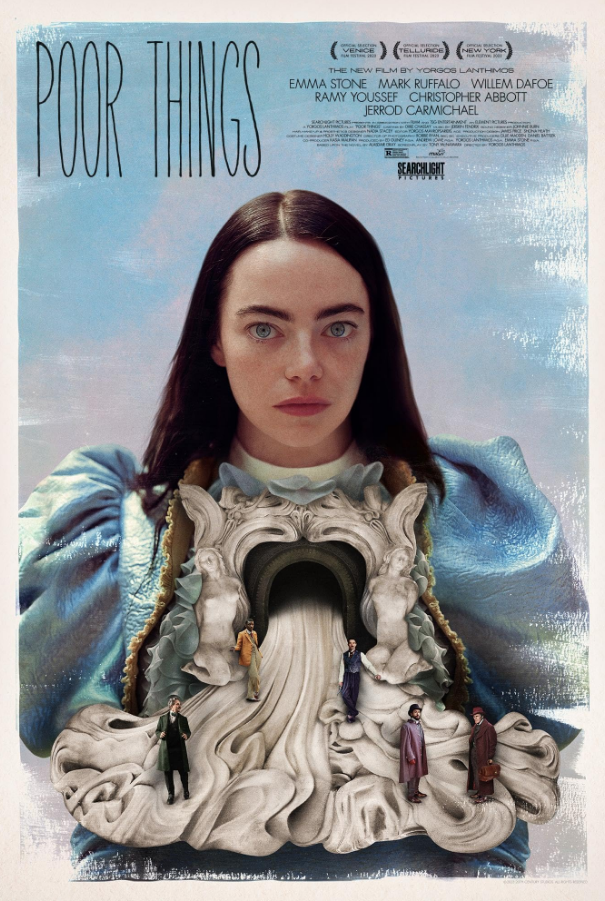
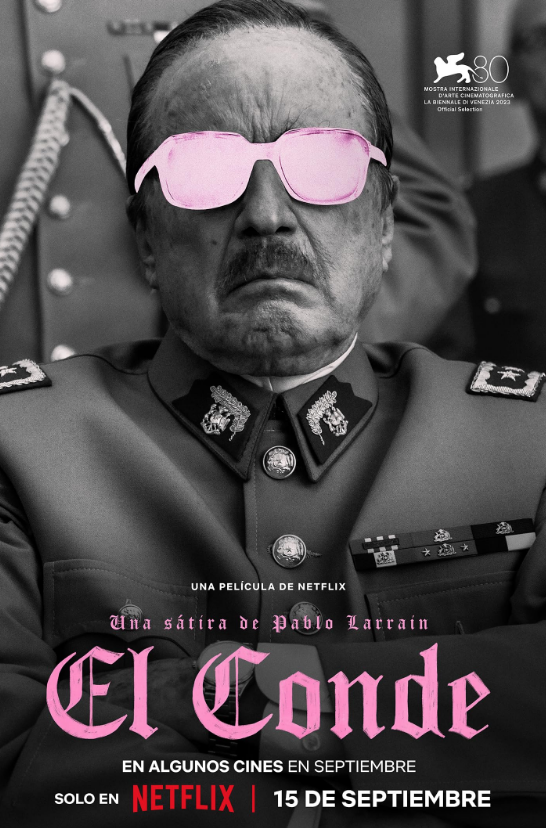
Venice's 80th edition feels weaker (in terms of competition films) than the previous editions I've covered for The Film Experience. That said there are some strong contenders for the Golden Lion, and a few exceptional pieces of filmmaking. Here are three movies that stand out from the crowd. What's more they each have the potential to be strong Oscar contenders after Venice.
I'll present them in order of their excellence, from the very good to the simply superb...
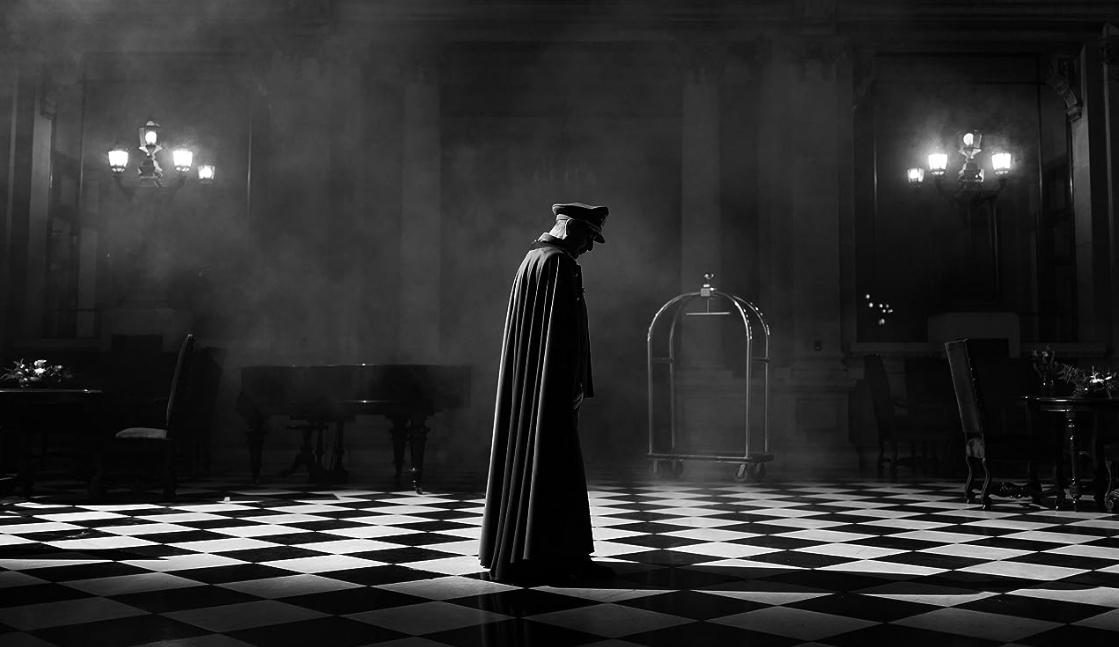
EL CONDE by Pablo Larraín
Pablo is back to Chile after his Hollywood period (Jackie, Spencer) and is in perfect form. Festival director Alberto Barbera described El Conde as a "baroque revisitation of the vampire genre," and he was absolutely right. El Conde is a pure vampire movie, encompassing all the elements required. It is notably graphic, violent, and filled with blended hearts and blood, all depicted in sleek, modern black and white cinematography.
This time, Larraín's long-standing obsession with Chile's late dictator leads him to explore Pinochet's financial atrocities. In El Conde, Pinochet (Jaime Vadell) is portrayed as a vampire, but in the end, he sucked more money than blood ... and he required a lot of blood while being the "father and king of Chile". Pinochet is portrayed as an eternal creature due to the web of connivances he had at every level of the national and international scene, which becomes the focal point of this film.
Larrain occasionally loses his focus with so many big ideas. He is eager to both denounce the past while casting a chilling look at present-day Chile, struggling to sever its connection with its bloody history. El Conde is filled with dark and savory yet irresistible humor. I particularly enjoyed El Conde's origin story for Pinochet.
There are two memorable flying scenes in El Conde, both showcasing characters using vampire powers. The styles of flight in these scenes are opposite, reflecting the contrasting attitudes of the protagonists. The second flying scene resembles a dance and is a true moment of poetic cinema.
In the end El Conde reminded me most of Post Mortem, from Larraín's filmography. As in that early film, the story fully reveals its implications in the final, superb 20 minutes. I recommend trying to experience it without knowing the main turning point of the plot, so perhaps skip the rest of the review if you're particularly spoiler averse. Without giving away the climax of the movie, I must mention that I found the last line of the film particularly chilling. A pivotal character posits that it would be interesting to "live as rich people in a poor country like Chile." This single line makes the movie relatable to almost any of us, surrounded by an insidious kind of financial vampire.
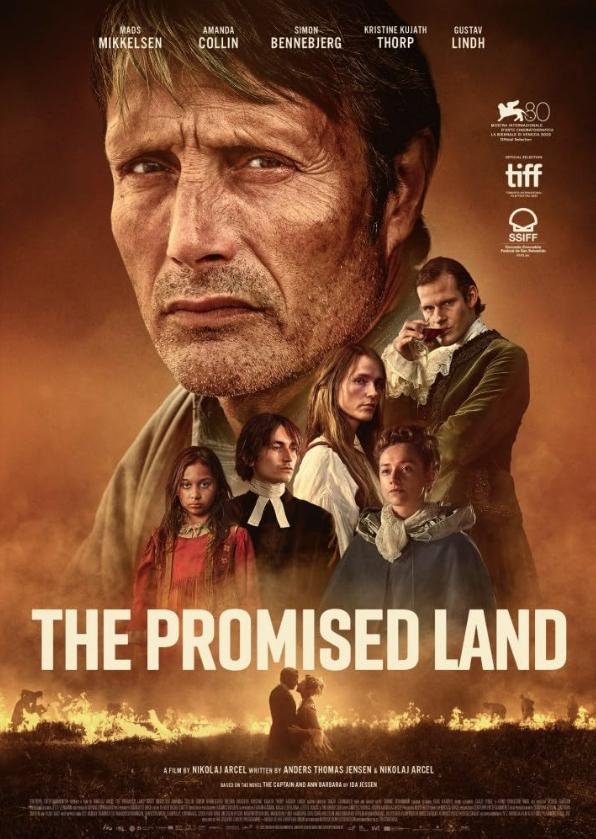 BASTARDEN / THE PROMISED LAND by Nikolaj Arcel
BASTARDEN / THE PROMISED LAND by Nikolaj Arcel
Bastarden (which they're calling The Promised Land for future US release) is a film that truly has it all. It packs a powerful emotional punch and during the press screening, you could hear several people sobbing. This costume drama, tinged with western elements, showcases Nikolaj Arcel's return to the heights he reached with the Oscar-nominated A Royal Affair (2012). It vividly and coherently portrays the desperate attempt to colonize the Jutland heath in the 18th century, led by Captain Ludvig von Kahlen (Mads Mikkelsen). I was so captivated by the story that I had to check if it was based on historical events (it's not).
What struck me most was the wide range of human emotions, all of them conveyed with power. Bastarden features moments of pure naiveté and ingenuity, brought to life by an endearing nomadic child attempting to steal from Kahlen's fledgling colony. On the other end of the spectrum, there are scenes of raw violence, torture, killings, and even castration. Yet, everything flows naturally, with a sense of purpose and scope.
I never imagined I could be so invested in the cultivation of potatoes, but this powerful western-infused costume drama manages to maintain tension until the very end. It doesn't just explore a broad range of emotions but also delves into its themes with a clear political perspective. The film depicts a fierce struggle between man and nature, made even more challenging by the arrogance of the powerful and cruel aristocracy. Arcel cleverly portrays the aristocrats as agents of chaos, while the protagonist, Ludwig, desperately strives to bring law and order to the heath, all while harboring ambitions of becoming an aristocrat himself.
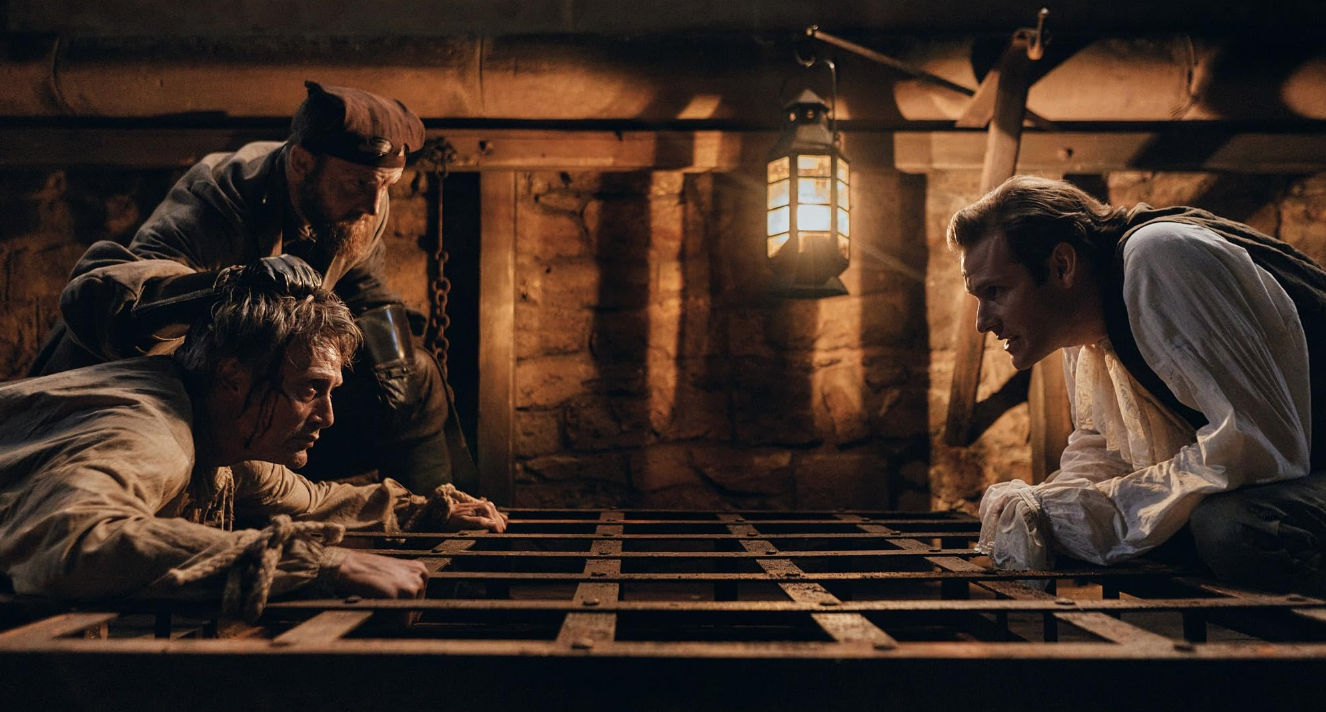
Mads Mikkelsen delivers a career-defining performance in this role, marked by a wide array of micro-expressions and contradictions. It's worth noting that Arcel lays the groundwork, giving his star a complex character to work with. As a writer/director, Arcel tends to blend into his storytelling, channeling his energy to showcase the talents of his actors. In Bastarden, he has reached a new level of refinement as a filmmaker.
I would venture to say that if Denmark submits this one, they've secured yet another Oscar nomination and possible win for Best International Feature Film. What's more Bastarden could lead Mikkelsen to contend for the Coppa Volpi and potentially a Best Actor nomination from the Academy.
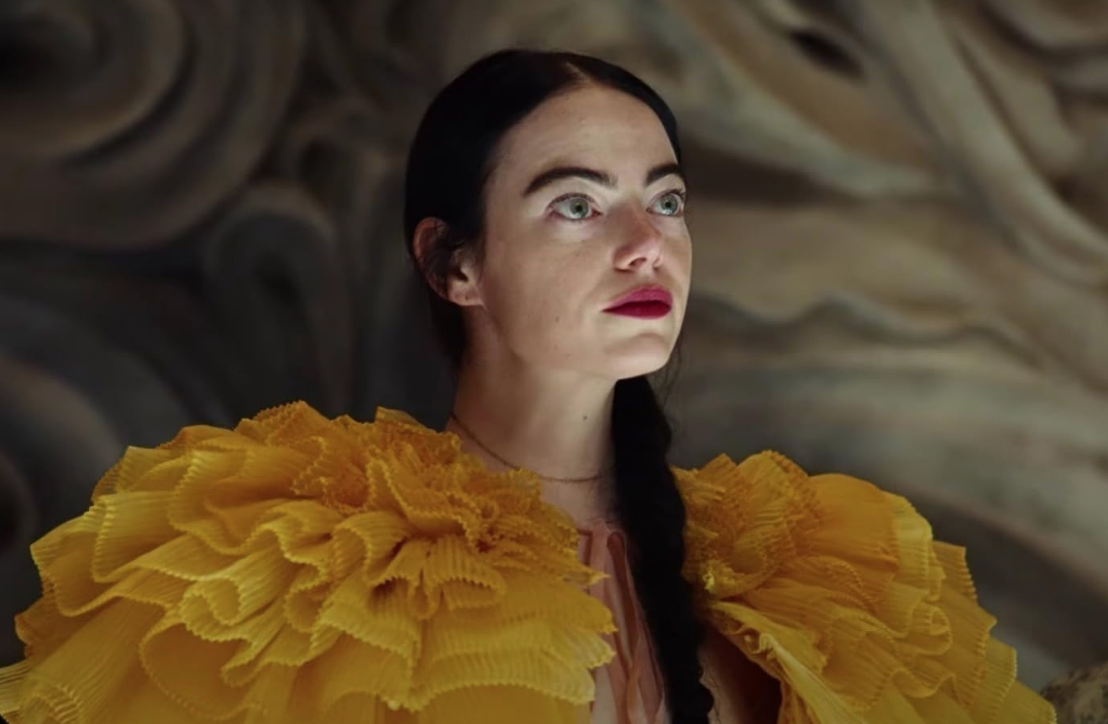
POOR THINGS by Yorgos Lanthimos
So far, Poor Things stands out as the best movie in competition; It'll be hard to top. Consider this a strong contender for the prestigious Golden Lion award. It marks Lanthimos's maturation as an auteur, delivering yet another phenomenal movie.
What fascinates me is how the two Best Films in competition (thus far) Bastarden and Poor Things share similarities in how the reunion between a particular actor and director lets them both reach even more exceptional level of quality. Emma Stone's performance in Poor Things is nothing short of superb. It's not unrealistic to consider her a top contender for the Best Actress Oscar. Bella Baxter is a phenomenal, iconic character, brimming with empathy for other characters and able to emotionally connect with the audience. Stone's remarkable work with body posture, eye movements, walking, hand gestures, and head movements is mechanical and uncoordinated. Yes she delivers the physicality in such a natural way that it leaves a lasting impression. Bella Baxter embodies a child trapped in the body of a young woman, rediscovering the world with wonder, completely unburdened by social conventions. Her spontaneity, coupled with her acute ability to decode the world, is both moving and thought-provoking.
The film delves deeply into the dynamics of relationships between men and women, in a way that even the most talked-about feminist film of the year, Barbie, couldn't achieve. Unlike Gerwig, Lanthimos is not constrained by commercial obligations. However, I found it striking how both directors explore the dichotomy between discovering the world through desire and the contrasting path of seeking independence from intimate attachments to men. I may be optimistic, but I believe Poor Things, despite its challenging content, has the potential to resonate with a broad audience.
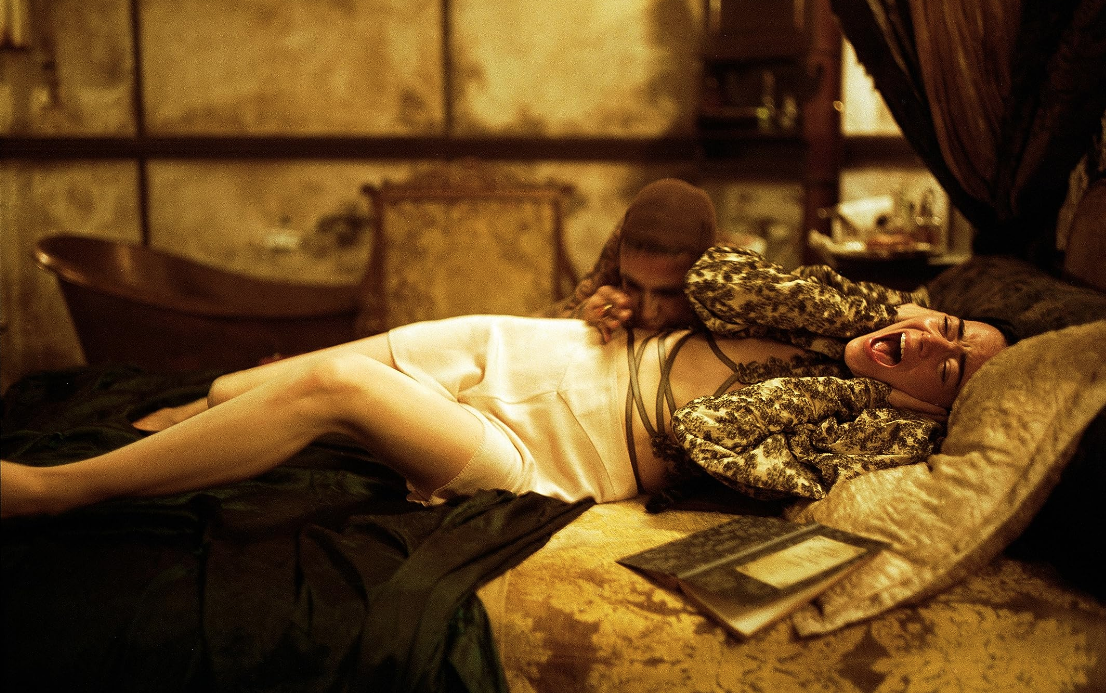
There are many sensuous and joyful sex scenes in the movie. Sex serves as a means for Bella to discover her own identity, and the film sheds light on how pivotal it becomes to her understanding of herself and others. This aspect casts a significant shadow on our sexless cinematic age. While there is some nudity and explicit content, much like the rest of the film, everything is handled with lavishness, elegance, and tact.
In Poor Things, Lanthimos finally exhibits absolute control. It's a visionary tale filled with rich colors and visual inventiveness that takes your breath away (perhaps best appreciated on a second or third viewing). The technical aspects of the film are meticulously crafted, sure to be iconic costumes, a soundtrack that morphs with the story, and sets that transport Bella and others into a Dali-like version of Europe. (If I were forced to find a single flaw in this movie, I would note that Yorgos continues to have a penchant for fish-eye effects.)
In terms of Oscars, if the film's sensuality isn't a hurdle, Poor Things has the potential to secure nominations in a wide array of categories, including Best Picture, Best Original Screenplay, Best Actress for Emma Stone, Best Supporting Actor for the amazing Willem Dafoe, Best Costume Design, Best Original Score, Best Cinematography, and Best Production Design. A Golden Lion at the Venice Film Festival would undoubtedly boost its chances, and having La La Land director Damien Chazelle as the president of the jury might further enhance Poor Things prospects of victory.
More Reviews from the the 80th Venice Film Festival



Reader Comments (2)
Those are 3 films that I definitely want to see though I've heard that Roman Polanski's new film is considered his worst. I wanted to see it. :(
These films indeed sound promising, and it's always 2048 interesting to gauge the potential Oscar contenders.